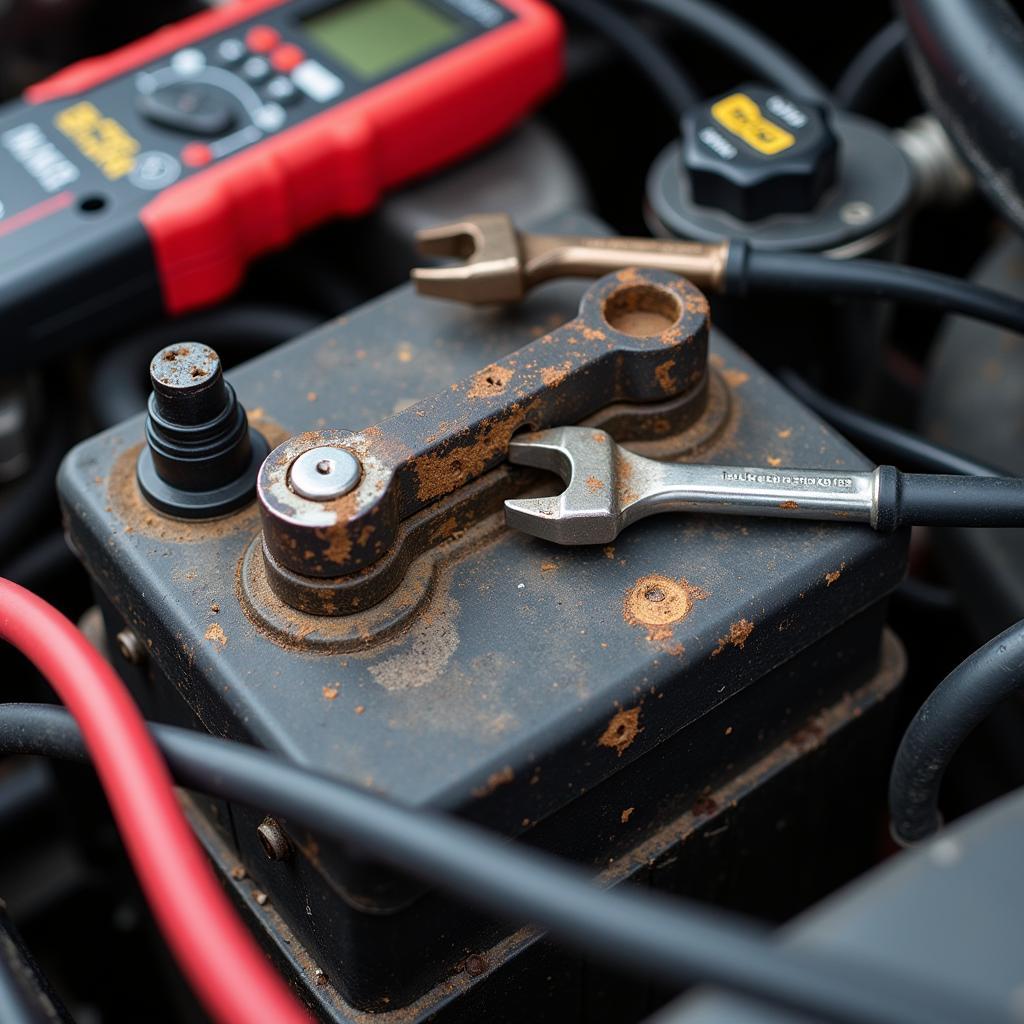A dead car battery can be a frustrating experience, leaving you stranded and late. Recognizing the signs of a faulty car battery is crucial for preventing these situations and ensuring your vehicle starts reliably every time. This guide will provide you with a comprehensive understanding of the common indicators of a failing car battery.
 Common Symptoms of a Faulty Car Battery
Common Symptoms of a Faulty Car Battery
Common Indicators of a Dying Battery
Dim headlights are often one of the first signs of a faulty car battery. If your headlights appear weaker than usual, especially at idle, it could indicate your battery is struggling to hold a charge. Similarly, flickering interior lights, slow power windows, and a malfunctioning radio can also point towards a weak battery.
Slow Engine Crank
When you turn the key, does your engine crank slowly or struggle to start? This is a classic symptom of a failing battery. The battery isn’t providing enough power to turn over the engine efficiently. A weak starter motor can also mimic this issue, but more often than not, it’s the battery at fault.
Other Signs of a Bad Car Battery
Beyond the obvious starting problems, there are other subtle signs of a faulty car battery you should be aware of. These include a clicking sound when you turn the key, a swollen or bloated battery case (due to internal heat), and the smell of rotten eggs (caused by leaking hydrogen sulfide gas).
How to Test Your Car Battery
You can easily test your car battery using a multimeter. A healthy battery should read around 12.6 volts with the engine off. If the reading is significantly lower, your battery is likely failing and needs replacement. You can also have your battery tested at most auto parts stores.
“A simple voltage test can save you a lot of headache down the road,” says John Miller, a seasoned automotive technician with over 20 years of experience. “It’s a quick and easy way to identify a weak battery before it leaves you stranded.”
The Importance of Regular Battery Maintenance
Maintaining your car battery is crucial for maximizing its lifespan and preventing unexpected failures. Keeping the battery terminals clean and free of corrosion can significantly improve its performance and longevity.
 Essential Car Battery Maintenance Tips
Essential Car Battery Maintenance Tips
Dealing with a Dead Battery
If your battery is completely dead and won’t start your car, you might need a jump start. If you experience a mini battery discharge, it’s wise to address the issue promptly. While jump-starting can get you going temporarily, it won’t fix the underlying problem. If your battery won’t start with a jump it’s likely time for a new battery.
Specific car models can be prone to battery issues, such as the Jeep battery keeps dying problem. Even vehicles like electric golf cart troubleshooting can benefit from understanding battery health. Addressing these specific issues can save time and money in the long run.
“Preventive maintenance is key,” advises Sarah Johnson, an electrical engineer specializing in automotive systems. “Regularly checking your battery and addressing any signs of weakness can prevent inconvenient breakdowns.”
Conclusion
Recognizing the signs of a faulty car battery is essential for every car owner. By understanding the common symptoms and performing regular maintenance, you can avoid unexpected breakdowns and keep your vehicle running smoothly. Don’t wait until you’re stranded on the side of the road – take proactive steps to ensure your battery is always in top condition.
